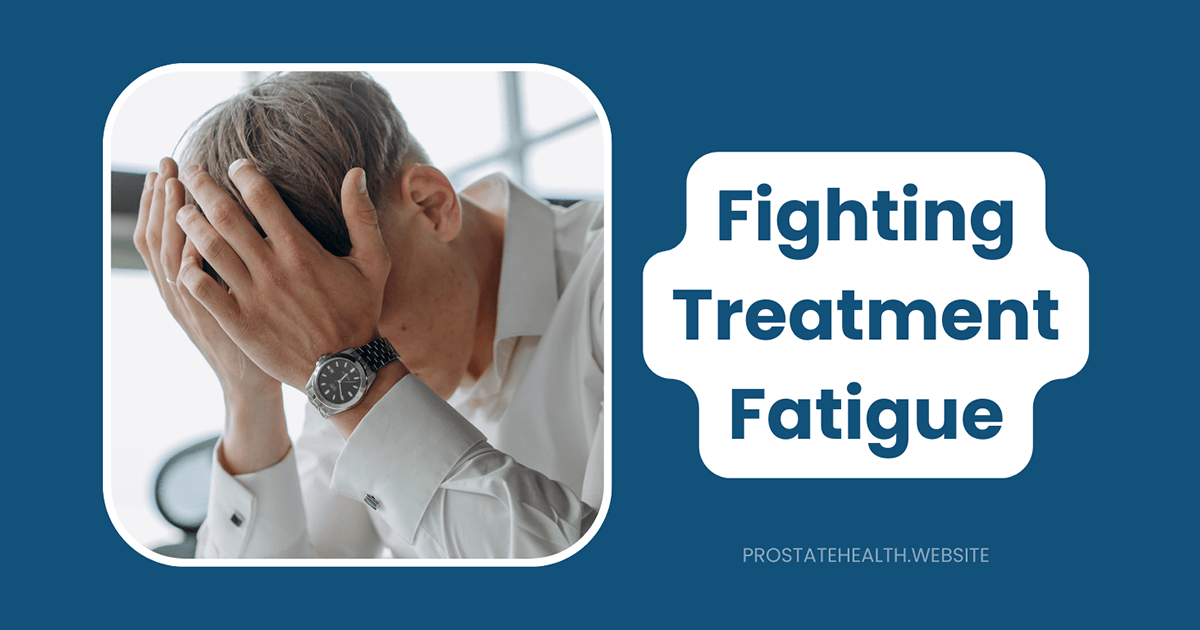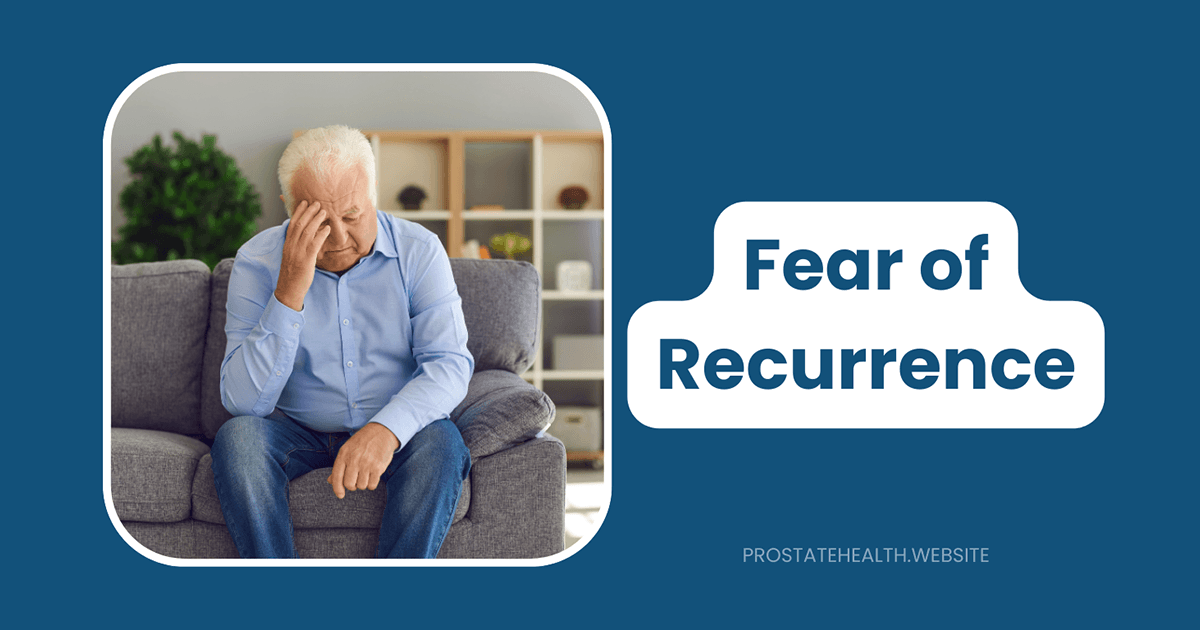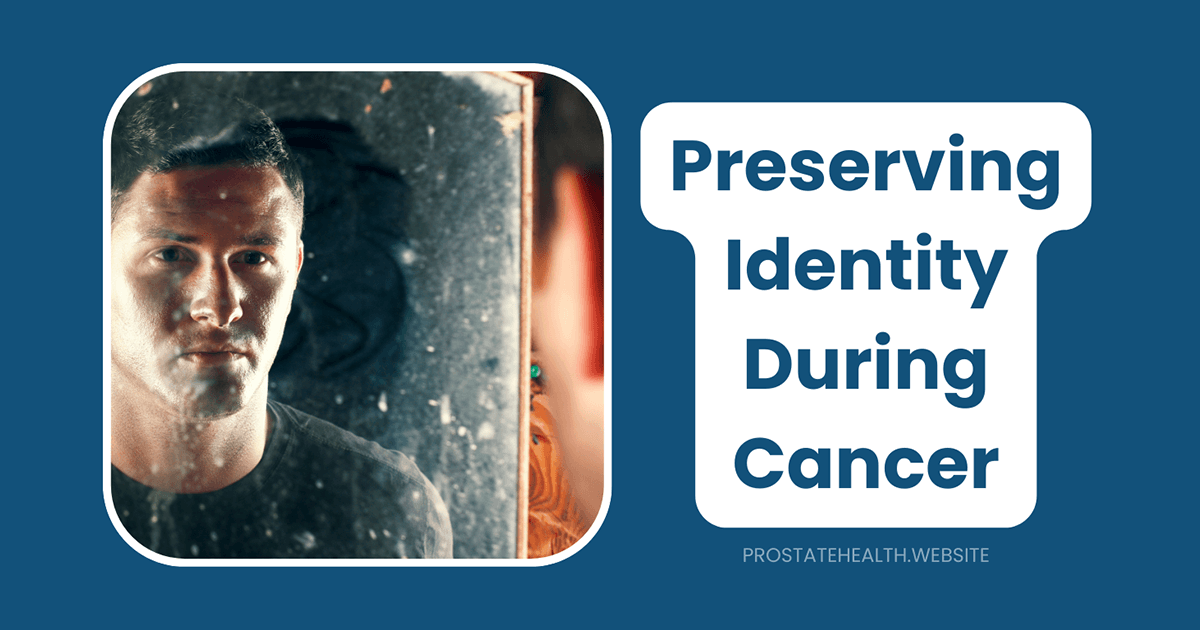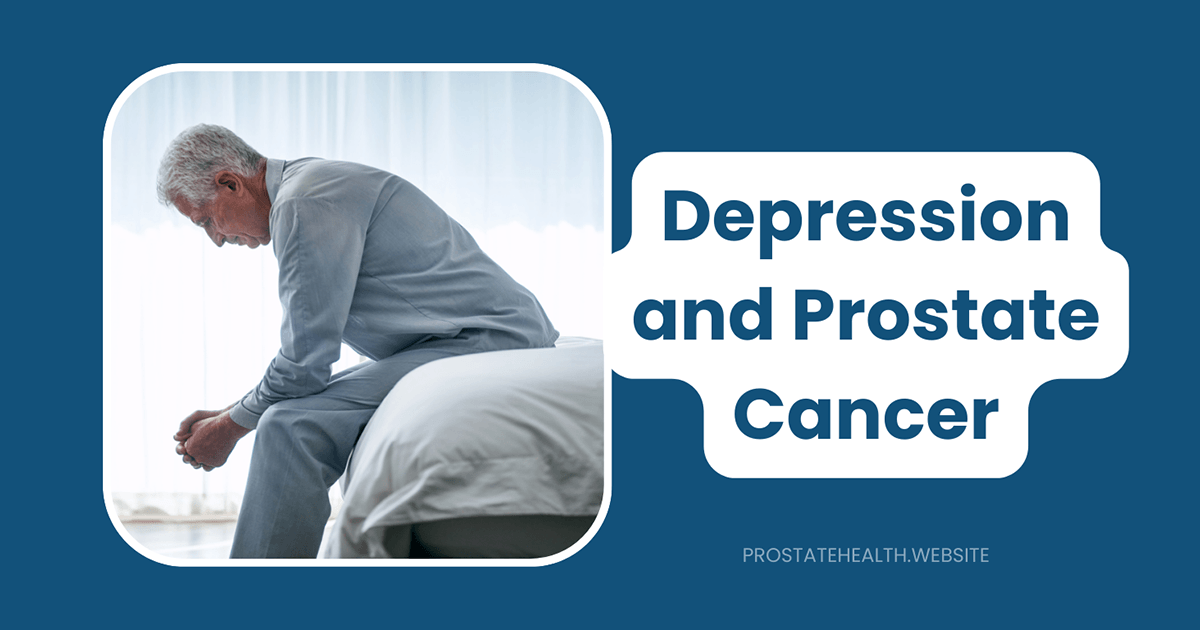Managing Reduced Libido During Hormone Therapy
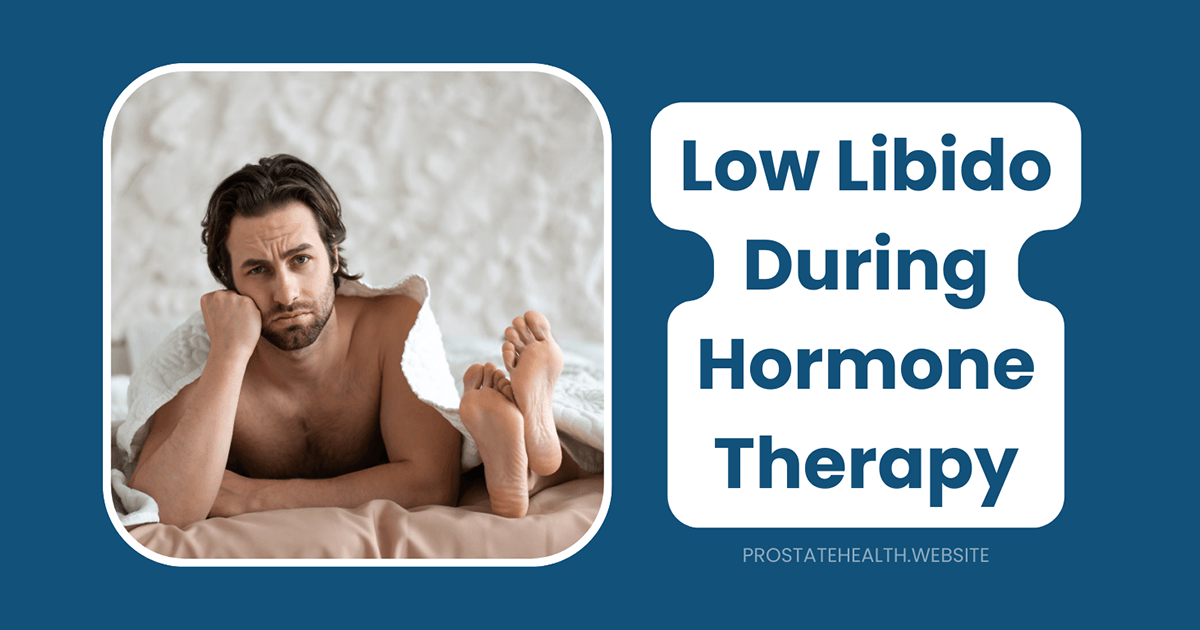
When James began hormone therapy for his prostate cancer, he was prepared for some side effects. What he wasn’t ready for was the profound change in his sexual desire.
“It was like someone flipped a switch,” he recalls. “One day I had normal interest in sex, and within weeks of starting treatment, that interest had virtually disappeared. It was disorienting—not just for me, but for my wife of 30 years.”
James’s experience is remarkably common. Studies show that over 80% of men undergoing androgen deprivation therapy (ADT) experience significant reductions in libido. This side effect, while expected, can profoundly impact quality of life, relationships, and self-image.
The good news? There are effective strategies for managing low libido during hormone therapy. This article explores practical approaches that have helped many men and their partners maintain intimacy and connection during this challenging time.
Understanding the Biology: Why Hormone Therapy Affects Libido
Before diving into management strategies, it helps to understand why these changes occur.
Androgen deprivation therapy works by dramatically reducing testosterone levels in the body. While this effectively fights prostate cancer, it also affects sexual function in several ways:
- Reduced sexual desire: Testosterone plays a crucial role in libido for all genders, but particularly for men
- Changes in erectile function: Low testosterone levels can make it difficult to achieve or maintain erections
- Altered orgasmic sensation: Many men report changes in how orgasms feel or difficulty reaching orgasm
- Physical changes: Weight gain, muscle loss, and other physical changes can affect body image and confidence
Dr. Michael Chen, urologist at Memorial Sloan Kettering Cancer Center, explains: “When we lower testosterone to near-zero levels with ADT, we’re essentially removing the primary driver of male sexual desire. It’s important for patients to understand this is an expected effect of treatment, not a personal failing.”
The Psychological Impact of Reduced Libido
The loss of sexual desire often carries emotional and psychological consequences that extend beyond the physical changes:
Identity and Masculinity Challenges
Many men report that reduced libido affects their sense of self and masculinity. As Robert, 68, shares: “I’ve always been a sexual person. When that part of me disappeared, I questioned who I was now.”
Relationship Concerns
Partners may misinterpret lack of sexual interest as rejection or loss of attraction. “My wife kept asking if I still found her attractive,” says Thomas, 72. “I did, but I just didn’t feel sexual desire anymore. It was hard for her not to take it personally.”
Grief and Loss
It’s normal to experience grief over changes in sexual function. “I went through a mourning period,” admits Carlos, 65. “I had to acknowledge what I’d lost before I could focus on what was still possible.”
Strategies for Managing Reduced Libido
While hormone therapy’s effects on libido are significant, many men and their partners find ways to adapt and maintain intimacy. Here are approaches that research and experience have shown to be helpful:
Medical Approaches
Intermittent Hormone Therapy
For some men, intermittent androgen deprivation therapy (taking breaks from treatment) may be an option:
- Research indicates that men on intermittent therapy report improved libido compared to those on continuous therapy
- During “off” periods, testosterone levels may rise enough to restore some sexual desire
- This approach must be carefully monitored and isn’t appropriate for all patients
“My oncologist suggested intermittent therapy after my PSA remained stable for a year,” shares William, 70. “During the breaks, I did notice my interest in sex returned somewhat, though not to pre-treatment levels.”
Medication Adjustments
Some medications may help with specific aspects of sexual function:
- PDE5 inhibitors like sildenafil (Viagra) or tadalafil (Cialis) may help with erectile function even when desire is low
- Some studies suggest bupropion may enhance sexual desire due to its effects on dopamine
- Testosterone supplementation is generally contraindicated during prostate cancer treatment, but can be discussed in specific situations
Always consult your healthcare provider before trying any medication, as some may interfere with cancer treatment.
Psychological and Relationship Strategies
Reframing Sexuality and Intimacy
Many couples find that broadening their definition of sexuality helps maintain connection:
- Focus on sensual touch rather than sexual performance
- Explore non-genital forms of physical pleasure
- Emphasize emotional intimacy and connection
- Discover new ways to give and receive pleasure
“We had to completely reimagine our intimate life,” explains David, whose partner has been on hormone therapy for three years. “We focus more on massage, cuddling, and other forms of touch. It’s different, but still meaningful and connecting.”
Communication Strategies
Open, honest communication becomes even more crucial when navigating changes in libido:
- Schedule regular check-ins: Set aside time to discuss feelings and needs without pressure
- Use “I” statements: “I miss our physical connection” rather than “You never touch me anymore”
- Be specific about needs: “I would appreciate more hugging and kissing” rather than “I need more intimacy”
- Listen without judgment: Allow your partner to express their feelings without becoming defensive
“The most important thing was just talking about it,” says Maria, whose husband has been on hormone therapy for two years. “Once we acknowledged what was happening, we could problem-solve together instead of suffering in silence.”
Professional Support
Many couples benefit from professional guidance during this transition:
- Sex therapy: Specialized therapists can offer specific strategies for maintaining intimacy despite low libido
- Couples counseling: Helps address relationship issues that may arise from changes in sexual function
- Support groups: Connecting with others facing similar challenges provides validation and practical ideas
“Seeing a sex therapist was the best decision we made,” shares Robert. “She helped us understand that intimacy could take many forms and gave us practical exercises to stay connected.”
Lifestyle Approaches
Several lifestyle factors can positively influence well-being and potentially mitigate some effects of hormone therapy:
Regular Exercise
Research suggests that regular physical activity may help reduce some side effects of hormone therapy:
- Aim for at least 150 minutes of moderate exercise weekly
- Include both aerobic activity and strength training
- Consider activities that can be done with a partner, like walking or dancing
“I started walking with my wife every morning,” says Thomas. “It didn’t directly affect my libido, but it improved my mood and energy, which made me more open to intimacy in general.”
Stress Management
Stress and anxiety can further diminish already-reduced sexual interest:
- Practice mindfulness meditation or deep breathing
- Consider yoga or tai chi, which combine physical activity with stress reduction
- Ensure adequate sleep, as fatigue exacerbates many hormone therapy side effects
Nutrition
While no specific diet has been proven to restore libido during hormone therapy, overall health supports well-being:
- Focus on a Mediterranean-style diet rich in fruits, vegetables, whole grains, and healthy fats
- Limit alcohol, which can further reduce sexual function
- Stay well-hydrated, as dehydration can worsen fatigue and other side effects
Special Considerations for Partners
Partners of men on hormone therapy face their own challenges:
Understanding It’s Not Personal
“The hardest part was not taking it personally,” admits Jennifer, whose husband has been on hormone therapy for 18 months. “I had to really understand that his lack of interest had nothing to do with his feelings for me.”
Managing Your Own Sexual Needs
Partners may need to adjust their expectations and find ways to meet their own needs:
- Open communication about sexual needs and boundaries
- Potential agreements about solo sexual activity
- Focus on non-sexual forms of intimacy and connection
Finding Support
Partners often neglect their own need for support:
- Consider joining a support group specifically for partners
- Maintain connections with friends and family
- Don’t hesitate to seek individual counseling
When to Seek Additional Help
While reduced libido is an expected side effect of hormone therapy, certain situations warrant additional medical attention:
- Depression or anxiety that interferes with daily functioning
- Relationship conflict that worsens over time
- Physical symptoms like hot flashes or fatigue that significantly impact quality of life
- Concerns about how reduced libido is affecting your relationship
“I waited too long to talk to my doctor about how I was feeling,” admits James. “When I finally did, he adjusted my medication schedule and referred me to a therapist who specialized in cancer-related sexual issues. It made a tremendous difference.”
Planning for the Future
For many men, hormone therapy is temporary, lasting months to years. Others may need to continue treatment indefinitely. Either way, having a plan helps:
If Treatment Is Temporary
- Discuss with your healthcare provider what changes to expect when treatment ends
- Understand that recovery of sexual function varies widely among individuals
- Be patient, as testosterone levels may take months to normalize after treatment
If Treatment Is Ongoing
- Focus on adapting to a “new normal” rather than waiting for things to return to how they were
- Regularly reassess what’s working and what isn’t in terms of intimacy strategies
- Continue open communication with your partner as needs and feelings evolve
Resources for Additional Support
Several organizations offer resources specifically for managing sexual side effects of prostate cancer treatment:
- American Cancer Society’s Sexuality for the Man With Cancer
- ZERO – The End of Prostate Cancer offers support groups and resources
- Us TOO International provides peer-to-peer support
The Bottom Line: Adaptation and Connection
Reduced libido during hormone therapy presents real challenges, but many men and their partners find ways to maintain meaningful intimacy despite these changes.
As James, whom we met at the beginning of this article, reflects: “Three years into hormone therapy, our intimate life looks very different than it did before. But in some ways, we’re closer than ever. We’ve learned to communicate better, to be more creative, and to value different aspects of our connection. It hasn’t been an easy journey, but we’ve grown through it together.”
The key is to approach this challenge as a team, with open communication, willingness to adapt, and focus on the many dimensions of intimacy that remain available even when libido is reduced.

